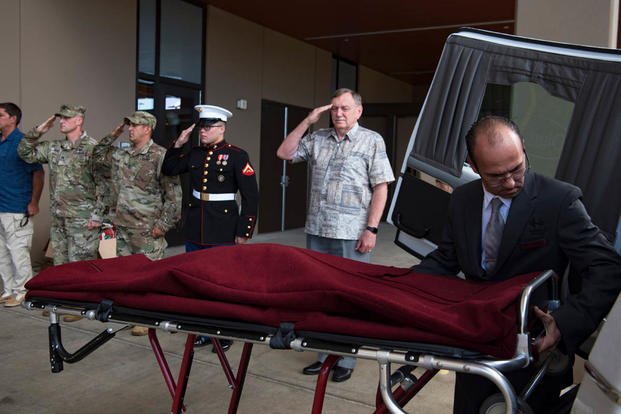In jobs, like in business, they say it's best to invest your time and money in things everybody needs. When looking for a post-military career or even just a position to earn extra money while looking for the big job, it's important to keep one's options open.
Everyone needs to eat, everyone will need a doctor at some point and, as Benjamin Franklin once said, "In this world, nothing can be said to be certain, except death and taxes."
But food service may not pay enough, and many might be put off from joining the health-care field, given recent events. So if you're not into learning tax preparation, check out these morbidly fascinating jobs whose services we will all need in the future.
You can even learn many of these jobs in the military.
Keep in mind that the requirements for these jobs can vary by state.

1. Gravedigger
Also known as burial ground custodians, the job of a gravedigger is one that every cemetery needs. While it can involve a lot of labor, there are inherent perks to the job. It's quiet, and gravediggers get to spend a lot of time outdoors. Best of all, for an average of $25,000 to $35,000 per year, plus bonuses, they no longer have to dig by hand.
While the gravedigger needs to know the exact dimensions of the incoming casket, they have little to no interaction with grieving families. Try to think of it as providing the final resting place for a life well lived.
2. Cremation Technician
Cremation techs make a little more than gravediggers, but that's because cremation is becoming a much more popular afterlife option. The job is more than lighting fires, though. Often, technicians are asked to plan the services, prepare official documents and, most importantly, make sure the right person is being cremated, among other tasks.
While it requires no formal education, aspiring cremation techs will need to earn certification. This requires two days of lecture and passing a certification exam. A certified cremation technician can take home $40,000 per year.
Some states require cremation techs to attend a certain number of cremations under the direction of a certified cremator as part of their certification process.
3. Mortician
Also known as an embalmer, or what used to be called an undertaker, this is a tough job and requires a strong stomach, as well as attention to detail -- two things veterans bring to the table right away. Embalming is even a job one can learn while in the military.
For up to $54,000 a year, this is not a job for the faint of heart. Embalmers are the hardy folk who drain waste liquids, as well as the blood, from a body and replace blood with embalming fluid. They also wire jaws shut, hold lips together with Stickum and place eye cups behind eyelids.
4. Funeral Director
This is another gig that requires attention to detail, because funeral directors manage everything surrounding the coordination of funerals. From planning to execution, these organizational professionals not only have to plan the event; they also must plan everything surrounding the event. Everything. Including the guest of honor.
For $73,000 per year, the funeral director makes sure the body of the deceased is embalmed and is ready to make their appearance at the event, fully clothed and made up (if necessary). Beyond that, they ensure the proper certificates and permits for burial are in order. They also need great people skills, because everyone they interact with is likely grieving.
In some states and municipalities, funeral directors will be doing the same works as morticians, depending on the size of the local area. Some areas also require a two-year degree in
mortuary affairs and 3,000 hours of internship before you can apply for a license.
5. Coroner
Coroners are a mixture of legal expert and medical examiner -- as both fields relate to the recently deceased. Coroners are the people who remove bodies from their place of death and can be called to crime scenes. It's supposed to be a qualified coroner who performs autopsies to determine the cause of a death.
This also means you earn a whopping $70,000 a year to take the stand in court (if need be). You may even appear on "Forensic Files."
Municipal governments are responsible for filling this role, and "coroner" and "medical examiner" are sometimes used interchangeably. But being a medical examiner requires a medical degree; in many places, coroners are elected to the job. For some areas, running for coroner will require a medical degree to boot.
Bonus: Support Staff
If you're interested in a mortuary career but aren't sure what job is for you, you can start as support staff for a funeral home or local government. This part-time gig requires no certification. Support personnel remove bodies from their place of death, prepare the chapel for services, monitor services, transport deceased to their services and burials, and anything else the funeral director may need.
-- Blake Stilwell can be reached at blake.stilwell@military.com. He can also be found on Twitter @blakestilwell or on Facebook.
Want to Know More About Veteran Jobs?
Be sure to get the latest news about post-military careers as well as critical info about veteran jobs and all the benefits of service. Subscribe to Military.com and receive customized updates delivered straight to your inbox.
















